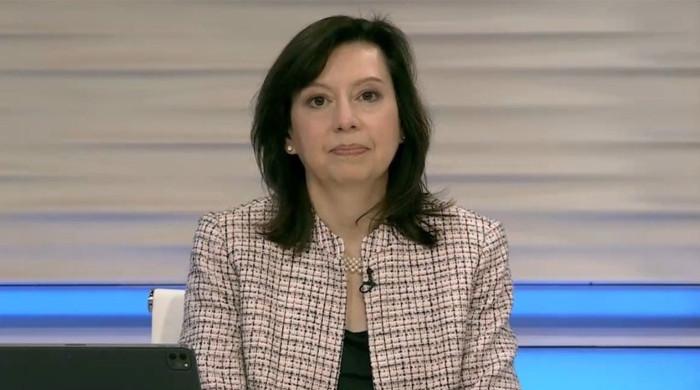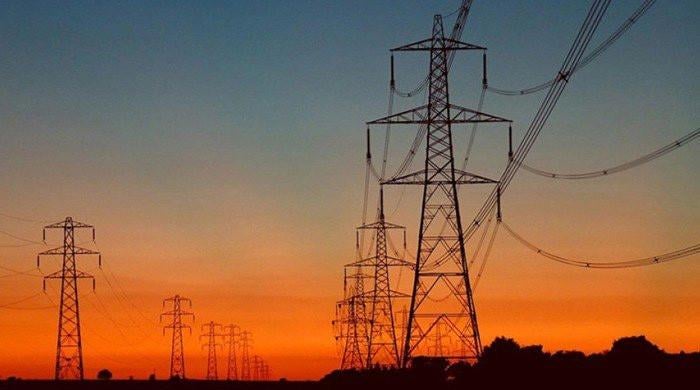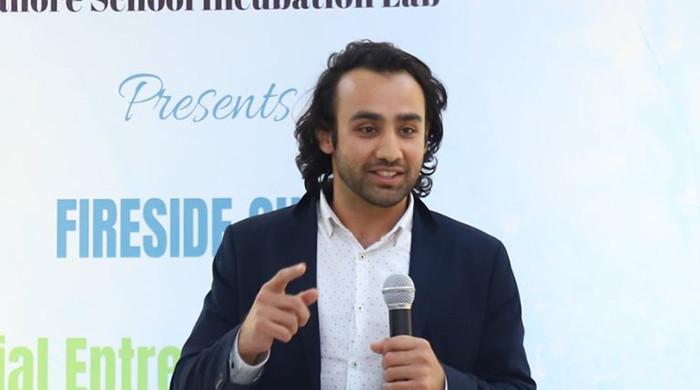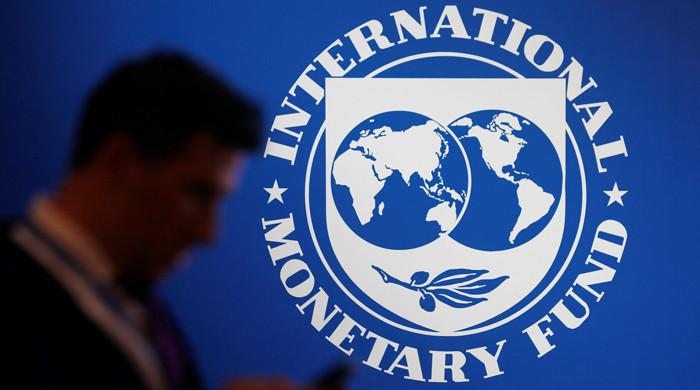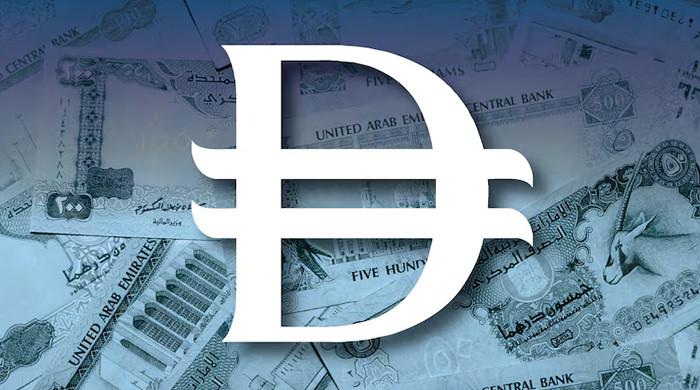PTI-led KP govt presents Rs1,118.3bn budget for 2021-22
KP government proposes allocating Rs371 billion for ADP, Rs747.3 billion for current budget expenditure
June 18, 2021
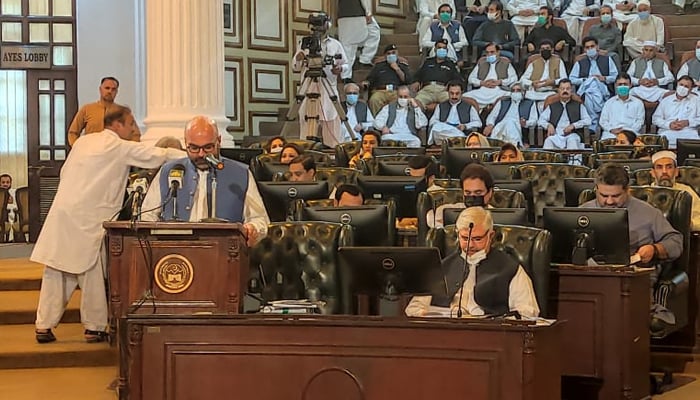
- KP government proposes allocating Rs371 billion for ADP.
- Proposes Rs747.3 billion for current budget expenditure.
- Govt employees who did not take special allowance to get 37% increment.
PESHAWAR: Khyber Pakhtunkhwa government on Friday presented a Rs1,118.3 billion balanced budget for the financial year 2021-22, with a record allocation of Rs371 billion for the annual development programme (ADP) and Rs747.3 billion for current budget expenditure.
The KP government has announced a record 37% increase in salaries of all those employees who did not take special allowances from the government.
Presenting the third budget of PTI-led government in KP Assembly, Finance Minister Taimur Salim Jhagra said Rs919 billion have been earmarked for settled districts and Rs199.3 billion for development of merged tribal districts.
ADP allocation
Out of the total Rs371 billion for ADP, the government has proposed an allocation of Rs270.7 billion for settled districts and Rs100.3 billion for merged tribal districts.
Current budget allocation
Likewise, Rs648.3 billion have been earmarked for settled districts and Rs99 billion for merged districts in the total allocation of Rs747.3 billion.
Two 'innovative approaches'
The minister said the present budget was based on five pillars — record increase in salaries of government employees, development budget, devoted services to people, increasing KP’s resource revenue, and introduction of goal-oriented reforms and innovation in the overall governance system.
He said two "innovative approaches" — "development plus budget" and "service delivery budget" — were being introduced under which Rs500 billion would be spent on the former, focusing on mega projects such as Sehat Plus Cards, provision of furniture to government schools, and increase in medicines budget to public sector hospitals, while Rs424 billion would be spent on the latter with priorities to payment of salaries of doctors, nurses, and teachers, besides provision of medicines to hospitals and fuel to Rescue 1122 ambulances.
Revenue and expenditure
About the generation of income and revenue during 2021-22, the minister said a Rs1,018 billion revenue and income target was set for the next fiscal year that would be achieved from different financial resources, duties, and taxes.
Revenue
He said Rs475.6 billion would be collected through federal taxes; Rs57.2 billion through a federal divisible pool of 1% share under the terrorism affected province; Rs26.5 billion under Gas and Oil royalty and surcharge (direct transfer); Rs74.7 billion under hydel new profit (according to MoU 2015-16) and arrears; Rs75 billion under provincial tax and non-tax revenue; Rs85.8 billion through foreign development assistance (for settled areas) and Rs3.3 billion foreign development assistance (for merged areas); Rs187.7billion under special assistance grant for the merged areas; and Rs132.5billion from other revenue resources.
Expenditure
About details of expenditure budget during FY2021-22, the minister said a total of Rs374 billion would be spent on salaries, including Rs60 billion in merged areas and Rs314 billion in settled districts.
Similarly, Rs92.1 billion would be utilised for payment of pension, including Rs0.1 billion for merged areas and Rs92 billion for settled districts.
Besides salaries, Rs203.9 billion would be spent for operation and maintenance expenditures, emergencies, and district expenses. including Rs38.9 billion for merged areas and Rs164.9 billion while Rs74.4 billion for other current expenditures.
In addition, Rs244.6 billion have been proposed for expenditures under Provincial Development Programme, including Integrated Implementation Programme for merged areas, he said, adding Rs17.4 billion have been earmarked for Annual Development Programme.
Salaries of government employees
The salaries of all government employees except those who didn’t get special allowances are being increased to 37%, including a 20% increase in Functional or Sectoral Allowance, 10% increase in Adhoc Relief Allowance, 7% in house rent for those employees who don’t benefit from government’s accommodation scheme.
Jhagra said a 100% increase in pension expenditure has been witnessed in the last couple of years and the share of pensions, which was only 1% in 2003-04 had jumped to a record 13.8% of the total budget in 2021-22.
To overcome pension expenses, he said two proposals — an increase in the upper age limit of government employees, i.e., 55 years for early retirement or completion of 25 years service — were under consideration that would save Rs12 billion per year.
Similarly, Rs1 billion per year would be saved from a change in the pension rules under which widows, children, and parents of deceased employees would be entitled to pension benefits.
The minister announced that minimum wages of labourers and daily wagers were being increased to Rs 21,000.
The finance minister announced a 100% increase in pensions of the widows that were earlier 75%.
Other allocations
Besides Prime Minister’s Ehsas Programme and Universal Health Insurance coverage, he said, Rs10 billion have been allocated for wheat subsidy, Rs10 billion for food baskets to poor people, Rs10 billion for the revival of Small Medium Entrepreneurs (SMEs) that had been affected due to coronavirus, Women.
Similarly, Rs10.4 billion have been allocated for FY2021-22 to bridge the gap between developed and underdeveloped districts. Rs2.6 billion have been earmarked for honoraria to khateebs of 20,000 mosques.
Reduced taxes
To increase economic activities and revenue, the provincial government proposed a decrease in tax ratio on 12 categories items and extend the lowest tax ratio on 17 categories items under the Khyber Pakhtunkhwa Revenue Authority, and exempted agriculture sector from agri tax.
The rate of property tax have been further reduced to benefit those who regularly pay taxes besides facilities of archives, libraries, and hostels for students of the higher education and free admission to students seeking admission in primary and secondary government’s schools has been announced.
Similarly, small farmers were exempted from land taxes.






